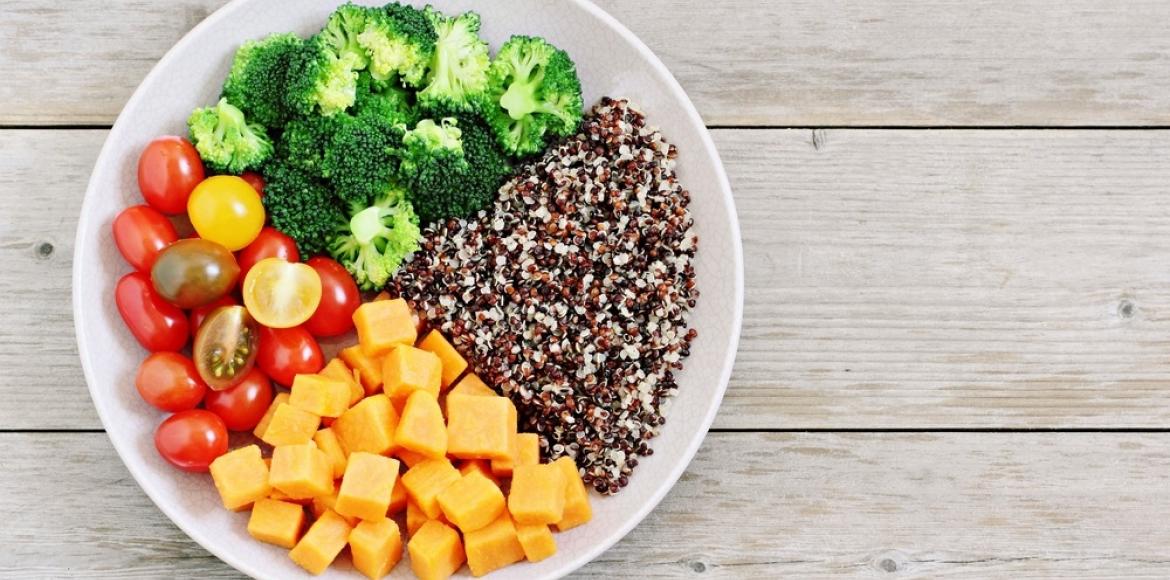Iodine is essential for the production of thyroid hormones, and is a trace element required by the body throughout life. Iodine supports the formation of the nervous system in the fetus, during puberty and into adulthood. Find out more about this trace element, its benefits, the best natural sources and the risks of deficiency or excess.

Characteristics of iodine
Iodine is an essential micronutrient for the functioning of our body. It is one of the main components of thyroid hormones, responsible for basic metabolism, body temperature regulation, reproduction, blood cell production, growth, muscle function and nervous system development.
This content is part of the guide Blooness, the guide to the ideal human diet, the summary of which you can find here 🌱🥑
The benefits of iodine in the body
From the moment a baby is conceived in the womb, iodine ensures the production of thyroid hormones, essential to the thyroid gland. These hormones control cell growth and maturation. They are also involved in brain development.

These hormones are essential to the body throughout our existence, regulating thermogenesis (heat production to maintain body temperature at 37°) and energy metabolism (level of caloric expenditure). They modulate protein synthesis.
Take control of your diet and never miss another chapter of the guide by subscribing to the Blooness newsletter 🙌
The main sources of iodine in food
The iodine content of food depends essentially on our consumption patterns, as well as cultural, geographical, terrestrial and chemical conditions.
The foods richest in iodine are seafood, eggs, seaweed and dairy products, especially liquid dairy products such as milk. But iodine is also exceptionally high in iodine-enriched salt, and in all foods to which salt or iodine has been added.

|
Food |
Iodine content (µg/100g) |
|
Haddock |
116 |
| Cooked periwinkle or clam |
80 |
|
Cooked whelk |
114 |
| Cooked cod |
120 |
|
Cooked crab or crab cake |
100 |
| Ewe's milk cheese from the Pyrenees |
124 |
|
Canned cod liver |
368 |
| Oyster |
88 |
|
Goat's milk |
25 |
| Cow's milk, cottage cheese or plain yoghurt |
13 à 20 |
|
Baked mould |
195 |
| Cooked whiting |
80 |
|
Cooked cod |
116 |
| Wholemeal bread |
31 |
|
Roquefort |
52 |
| Iodized salt |
1860 |
|
Canned sardines in oil |
71 |
| Cooked tuna |
150 |
Recommended daily iodine intake
Recommended daily iodine intake is around 150µg/day for an adult.
|
Age |
Recommended nutritional intake of iodine (µg/day) |
| Children aged 1 to 3 |
90 |
|
Children aged 4 to 8 |
90 |
| Children aged 9 to 13 |
120 |
|
Teenagers aged 14 to 18 |
150 |
| Adults over 18 |
150 |
|
Pregnant woman |
220 |
| Nursing mothers |
290 |

The daily iodine intake of athletes can be increased by 50 µg, especially for those who engage in activities that involve heavy sweating.
Smokers also have a high need for iodine, due to certain components (thyocyanates) present in smoke, which reduce its assimilation by the thyroid gland. The same applies to pregnant and breast-feeding women.
Iodine deficiency and saturation in the body
The availability of iodized table salt on the market consequently reduces the risk of iodine deficiency in many countries. The rare cases of iodine deficiency are due to insufficient thyroid hormone production, which can cause mental retardation, hypothyroidism and developmental and growth disorders. In all cases, iodine deficiency can be corrected to restore thyroid function.
Those most likely to suffer from iodine deficiency are vegetarians and vegans, women of childbearing age (especially those preparing to give birth), pregnant women and nursing mothers. A simple consultation with a dietician or doctor can determine whether you fall into a category at risk of iodine deficiency.

Excess iodine can be controlled through a balanced dietary choice. Exceeding the Tolerable Upper Intake Level (UL) can lead to hypo- or hyperthyroidism, thyroid cancer, thyroiditis or hypersensitivity reactions. Extreme care must therefore be taken when supplementing.
Note that the safe dose limit is 600 mg per day for an adult. This limit is easily reached through daily dietary intake and the use of iodized salt. Iodine supplements are therefore rarely recommended. However, it is always advisable to consult a dietician to ensure that you are consuming sufficient iodine on a daily basis, particularly in certain special cases.

